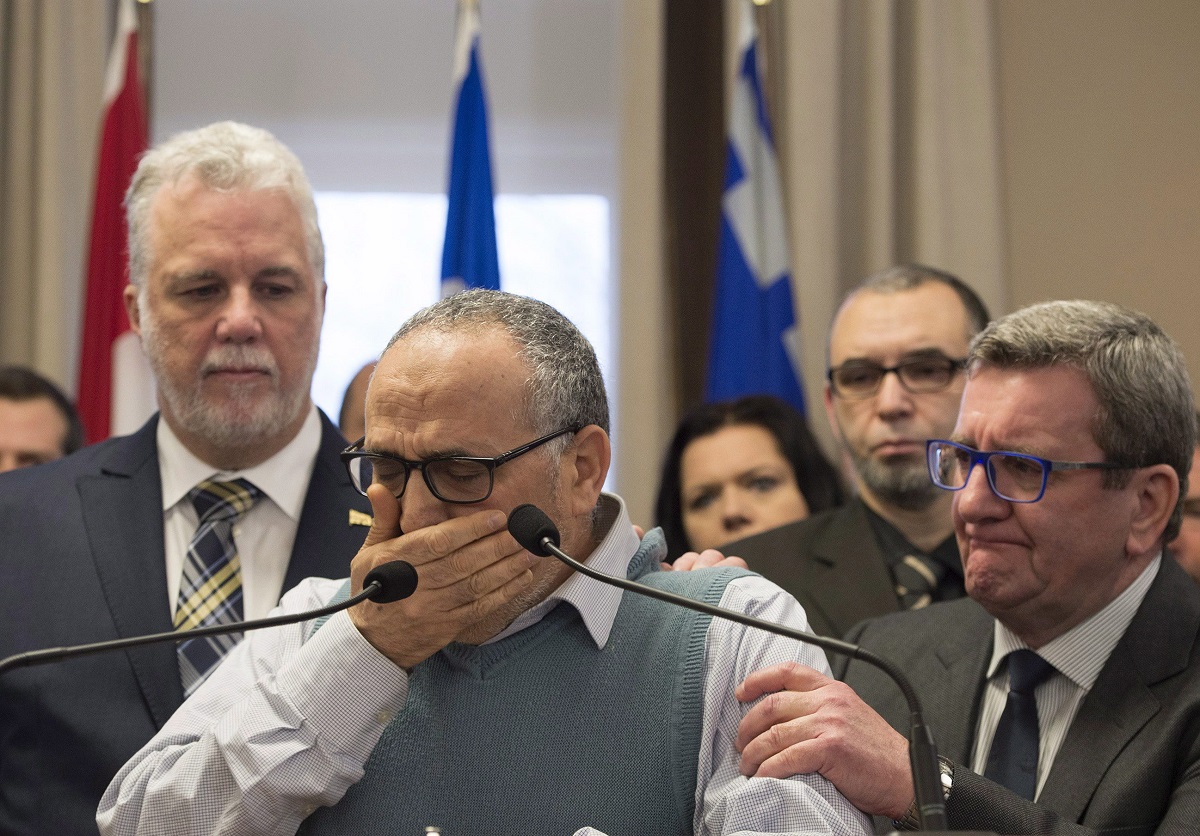What was it like growing up in Quebec?

It’s a question I get often. My boilerplate response generally consists of admitting that while language issues did often come up for me growing up in a predominantly French-speaking town about an hour east of Montreal, racism was never really a factor.
However, I am always quick to point out that as an Indo-Canadian who spoke the right kind of French, I was raised in a Hindu household. So although I faced no racism, I am under no illusions that had my family been practicing Muslims I would have had a very different experience growing up in rural Quebec.
READ MORE: Muslim misconceptions: The everyday Islamophobia facing Canadians
In the aftermath of the devastating attack on a mosque in Quebec City that has left six men dead and 19 injured, many are left wondering whether Quebec is in fact a distinct society when it comes to Islamophobia.
While there is ample evidence to suggest that Quebeckers are no more racist than their English Canadian counterparts, the same is not true regarding a negative conception of Islam. According to a Forum Research poll conducted late last year, 48 per cent of respondents from Quebec had a negative view of Islam, compared to 28 per cent of the rest of the country.
From Jacques Parizeau uttering the phrase “money and the ethnic vote” to explain why the sovereignty referendum was defeated in 1995 to the heated debate that engulfed Quebec in 2013 over “values,” Quebec’s unique brand of language and identity politics is no secret.

Get daily National news
Once you factor in Quebec’s promotion of interculturalism to multiculturalism, along with the fact that the political class firmly believes in the French concept of laïcité, or secularism, a larger picture starts to unfold of just how easy it is for politicians to exploit anti-Muslim sentiment for political gain.
However, Canadians elsewhere should not be feeling too smug about this, as shoring up anti-Muslim sentiment is hardly relegated to Quebec. The 2015 federal election campaign featured the Conservative Party proposing a tip line for “barbaric cultural practices,” apparently unaware of the fact that people already have the ability to call the police should they suspect a monstrous crime is underway.
Similarly, the current Conservative leadership race has been a stark reminder of the fact that appealing to xenophobic voters is a legitimate strategy in trying to get votes.
Conservative leadership candidate Kellie Leitch’s chief policy proposal is that she will screen immigrants and refugees for “Canadian values” without ever explaining how she will do this or what problem this will solve. Leitch’s flirtation with courting the unabashed bigot vote is so glaring that the pediatric surgeon with 22 letters after her name could not even bring herself to utter the words Muslim or mosque in her statement on the attack.
READ MORE: Kellie Leitch firm on screening immigrants for ‘Canadian values’ in wake of Quebec shooting
The mosque shooting was an act of barbarism. The act was carried out by a suspect who appears to fit the mass shooter profile: an anti-social white male in his 20s. Yet there are no cries from politicians on how we’re going to deal with the problem of radicalized young white men.
No parliamentary commissions looking into why a certain demographic of the population tends to be more prone to carrying out this kind of violence than others. Nary a mention from the Canadian commentariat on how the young white male community really needs to do a better job of cooperating with police when it comes to alerting the authorities regarding the radicals among them.
READ MORE: Quebec City shooting: Is Islamophobia ‘more manifested’ in Quebec?
We know from internal CSIS documents that when it comes to these “lone wolf” type attacks, they are more likely to be perpetrated by those who espouse and hold extreme right wing and white nationalist ideologies than those who are Islamist radicals.
When Kellie Leitch talks about Canadian values, she is certainly not targeting those who are posting racist, Islamophobic and misogynistic comments on social media or on other online forums. In fact, her campaign has actively solicited donations from the kinds of people who hide behind the anonymity of the Internet to spread their hate and implored those who make those types of comments to donate to her leadership efforts. It was even formally billed as the “Revenge of the Comment Section,” and raised over $35,000 in just 24 hours.
READ MORE: Hate crimes spike in Montreal after Quebec City mosque shooting
People are ultimately responsible for their own actions and it is irresponsible to suggest otherwise. We do not know what drove the shooter to commit such a heinous act. We do, however, know that we have allowed our discourse to be dragged down by xenophobic rhetoric that predominantly targets the Muslim community and that’s something both Quebeckers and Canadians should be working to change.
Supriya Dwivedi is host of The Morning Show on Toronto’s Talk Radio AM640 and a columnist for Global News.












Comments